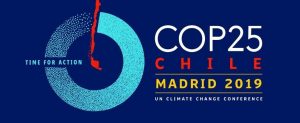Climate Talks Remain Stuck on Markets
Ministers from New Zealand and South Africa have been working to unlock climate negotiations stuck on Article 6, which concerns markets. Without agreement on markets, there is little hope of agreeing on how to ratchet up ambition.

11 December 2019 | MADRID| Alden Meyer, director of strategy and policy at Union of Concerned Scientists, has attended every climate meeting since 1991 – before there even was a United Nations Framework Convention on Climate Change (UNFCCC), but he says he’s never been as frustrated as he he’s been at this year’s meeting, the 25th Conference of the Parties (COP25) to the Convention.
“In my almost 30 years in this process, never have I seen the almost total disconnect that we are seeing here in Madrid between what the science requires and the people of the world are demanding on the one hand and what the climate negotiations are delivering in terms of meaningful action on the other,” he said this afternoon as negotiations – which are supposed to be focused on accelerating emission-reductions to avoid catastrophic warming – have instead bogged down over disputes regarding the structure of carbon markets that could, in theory, generate more reductions on lower cost by promoting cross-border cooperation.
The technical phase of negotiations ended late Monday, resulting in a long and contradictory text that was passed up to ministers on Tuesday. Ministers from New Zealand and South Africa have been tasked with forging enough agreement to move forward, but it appears the parties have moved even further apart and not nearer.
Once critical issue has been whether countries can use old offsets generated under the Kyoto Protocol’s Clean Development Mechanism (CDM) to meet their nationally-determined contributions (NDCs) to the Paris Agreement – a practice long advocated primarily by Brazil, but now advocated more vociferously by Australia and a handful of other countries as well. More than half of all NDCs mention the use of carbon markets to achieve their aims, so when the markets issue is stuck, the whole process is stuck.
Other sticky issues are whether to tax international offsets to fund adaptation and how to ensure the protection of human rights.
Several NGOs worried that pressure to create a deal could lead to a faulty mechanism.
“We know there’s a lot of pressure to come out of here with something,” said Yamide Dagnet, a senior associate at the World Resources Institute’s International Climate Action Initiative.
“They will be judged on the quality of the deal,” she added. “And, one of the young activists that we heard this morning said, ‘If you do not know how to fix things, stop breaking them.’ So, we need to make sure that we don’t end them with a broken Article 6.”
Please see our Reprint Guidelines for details on republishing our articles.

